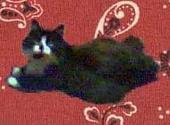Orwell vs. Huxley: The wisdom of both
There is no doubt that George Orwell's contribution to modern political consiousness was profound, especially in terms of language. When you examine the nature of US foreign policy these days, and all the newspeak and doublespeak used to whitewash and promote it, it appears that Orwell's classic 1984 is an especially important work of fiction. As much as I hear or read of people referring to "Orwellian this" and "Big Brother that", I encounter very little commentary about political and societal realities that evoke Aldous Huxley's classic novelBrave New World, or the follow-up work called Brave New World Revisited. While I'm glad that some people have been encouraged to read 1984 within the past few years, I wish that those people would also consider reading Brave New World, especially since I feel that the latter work may have more to offer in terms of providing a perspective that may alter the way one looks at the status quo.
Here's an excerpt from Neil Postman's Amusing Ourselves to Death that provides an interesting comparison between the insights of Orwell and Huxley: (from Undernews, by way of Strike the Root)
Here's an excerpt from Neil Postman's Amusing Ourselves to Death that provides an interesting comparison between the insights of Orwell and Huxley: (from Undernews, by way of Strike the Root)
What Orwell feared were those who would ban books. What Huxley feared was that there would be no reason to ban a book, for there would be no one who wanted to read one. Orwell feared those who would deprive us of information. Huxley feared those who would give us so much that we would be reduced to passivity and egoism. Orwell feared that the truth would be concealed from us. Huxley feared the truth would be drowned in a sea of irrelevance. Orwell feared we would become a captive culture. Huxley feared we would become a trivial culture, preoccupied with some equivalent of the feelies, the orgy porgy, and the centrifugal bumblepuppy. As Huxley remarked in Brave New World Revisited, the civil libertarians and rationalists who are ever on the alert to oppose tyranny "failed to take into account man's almost infinite appetite for distractions". In 1984, Huxley added, people are controlled by inflicting pain. In Brave New World, they are controlled by inflicting pleasure. In short, Orwell feared that what we hate will ruin us. Huxley feared that what we love will ruin us.





















2 Comments:
I can't tell you how many times I've tried to invoke sarcastic Huxleyisms, such as "I'm so happy to be a Delta" or "Where's my soma?" only to be met with empty stares. I think we're at the point where more people have read "Anthem" than "Brave New World."
Excellent point, Freeman. Your comments remind me of an excellent book I recently read, Mallcity 14. (The review isn't on my site yet, but is available at The Price of Liberty.) The focus of it is different than that of Brave New World, but there's sufficient overlap that it might be better at making some of Huxley's points.
Post a Comment
<< Home